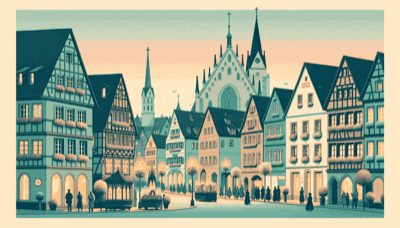We're here to help you keep count of the days to or since a date. Just click the button below and enter your chosen date to get started. Also choose the suggested days or search for a special day above #countingthedays

Corpus Christi, known as Fronleichnam in German, is celebrated on the Thursday following Trinity Sunday, which is 60 days after Easter. In Germany, it's a public holiday in certain regions, particularly in predominantly Catholic areas.
The feast of Corpus Christi was instituted by Pope Urban IV in 1264 to celebrate the Real Presence of Christ in the Eucharist. It honors the tradition of transubstantiation, where it's believed that bread and wine are transformed into the body and blood of Christ during Mass.
In Germany, Corpus Christi is marked with solemnity and reverence. The day is traditionally observed with:
Processions: The most prominent feature of Corpus Christi celebrations in Germany are the elaborate processions through towns and villages. These processions involve carrying the consecrated host (the Blessed Sacrament) in a monstrance, which is often sheltered under a canopy and accompanied by religious and civic dignitaries, parishioners, and sometimes bands.
Decorations: Routes of the processions are typically adorned with flowers and birch branches. Residents may decorate their windows with religious symbols and images.
Worship Services: Special masses are held before or after the processions to honor the Holy Eucharist.
Public Celebrations: In some regions where Corpus Christi is a public holiday, apart from religious observances, people may also enjoy a day off work to spend time with family or to participate in local festivities.
On Corpus Christi, practicing Catholics attend church services and participate in processions. Non-participants may observe the processions as spectators. In some communities, local traditions may also include fairs or cultural events that offer opportunities for socializing and celebration beyond the religious ceremonies.